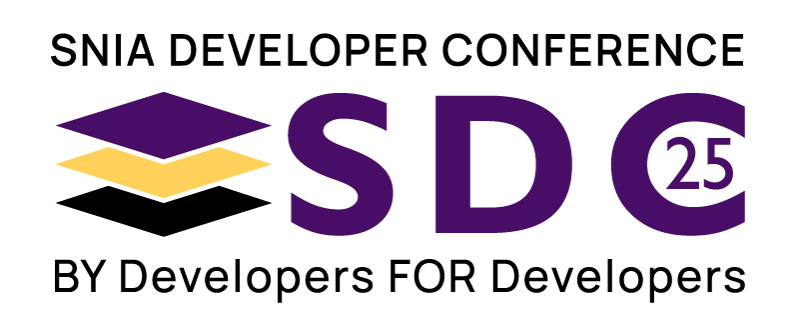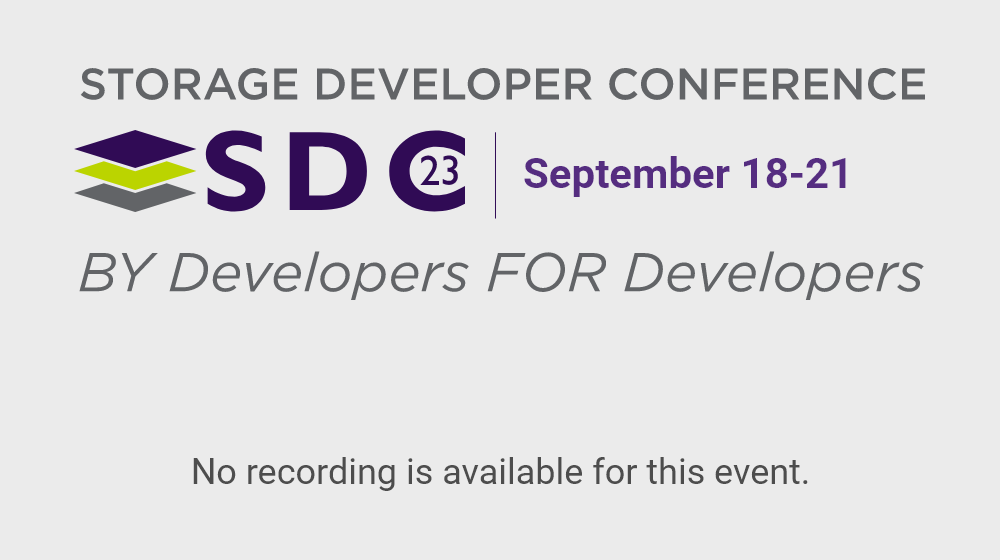Computational storage has emerged as a powerful solution for improving the performance and efficiency of compute systems by offloading computational tasks to storage devices. Emulating computational storage environments is crucial for software development, testing and benchmarking purposes before deploying such systems in production. This proposal presents an approach to emulate Computational Storage Drives(CSDs), Computational Storage Processor (CSPs) and Computational Storage Arrays (CSAs) using QEMU, SPDK, and libvfio-user. This framework supports both PCIe-based and network-based Computational Storage Devices and we will consider changes necessary to extend this to CXL-based devices.
Emulation framework for Computational Storage using QEMU, SPDK, and libvfio-user.
Tue Sep 19 | 2:00pm
Location:
Salon V
Abstract
Learning Objectives
- Explore and understand the components and tools involved in emulating Computational Storage devices. Learn about the tools and technologies such as QEMU, SPDK, and libvfio-user that we use to emulate Computational Storage environments.
- Evaluate the functionality and features of Computational Storage systems. Learn how to assess the capabilities and features of Computational Storage, including workload offloading mechanisms, data management techniques, and interactions with software.
- Understand the integration of computational storage in broader computing architectures. Explore the potential benefits and challenges of incorporating Computational Storage into existing or future computing infrastructures.
- Gain a comprehensive understanding of Computational Storage in emulated environments, and be equipped with the knowledge necessary to evaluate, integrate, and utilize computational storage systems in real-world scenarios.
---
Abhishek Gupta
Huawei
Related Sessions










